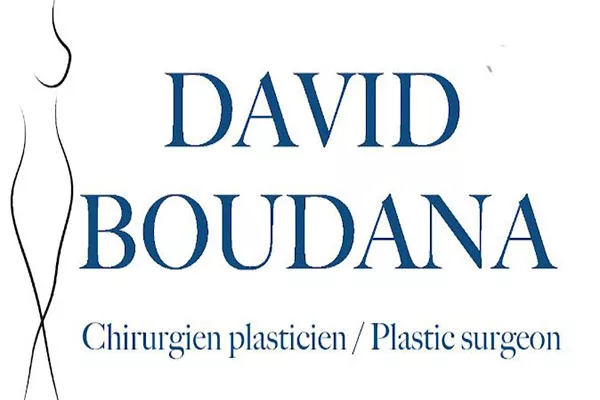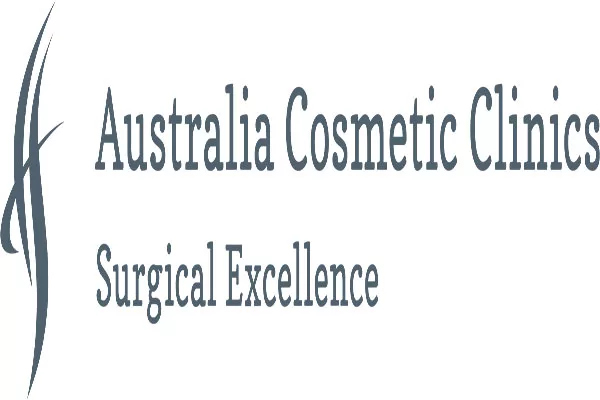Tummy tuck, also known as abdominoplasty, is a surgical procedure that removes excess skin and fat from the abdominal area. It is an effective way to achieve a slimmer and more toned appearance. However, to achieve optimal results, it is recommended that patients achieve their desired weight before undergoing tummy tuck surgery. Here are some reasons why weight loss before surgery is important:
- Reduce the risk of complications: Being at a healthy weight before surgery can reduce the risk of complications during and after the procedure. This includes infection, bleeding, and poor wound healing.
- Improve the aesthetic results: If a patient has lost a significant amount of weight before surgery, the excess skin and fat that would have been removed during tummy tuck surgery may no longer be present. This can result in a better aesthetic outcome and a more natural-looking result.
- Maintain the results: Losing weight after tummy tuck surgery can potentially undo the results of the procedure. This is because weight gain can lead to the stretching of the abdominal area and the re-accumulation of fat in the area that was treated.
If you are considering tummy tuck surgery, it is important to first consult with a board-certified plastic surgeon. They can evaluate your individual needs and recommend the best course of action. In general, it is recommended that patients reach their ideal weight before undergoing tummy tuck surgery.
To achieve weight loss before surgery, there are several steps patients can take. These include:
- Eating a balanced diet: A diet rich in whole foods, fruits, vegetables, and lean proteins can help patients lose weight and maintain a healthy weight.
- Exercising regularly: Exercise can help patients burn calories and lose weight. It can also help tone the abdominal muscles, which can enhance the results of tummy tuck surgery.
- Avoiding crash diets: Crash diets that involve rapid weight loss can be harmful to the body and lead to rebound weight gain.
- Seeking support: Patients may benefit from the support of a weight loss group or a nutritionist. These professionals can provide guidance and motivation to help patients achieve their weight loss goals.
In addition to helping patients achieve optimal results from tummy tuck surgery, weight loss can also have other health benefits. These can include:
- Lowering the risk of chronic diseases: Maintaining a healthy weight can lower the risk of developing chronic diseases such as diabetes, heart disease, and certain types of cancer.
- Improving mental health: Losing weight can boost self-esteem and improve overall mental health.
- Increasing energy levels: When the body is carrying excess weight, it can lead to fatigue and reduced energy levels. Losing weight can lead to increased energy and improved physical performance.
While weight loss before tummy tuck surgery is important, it is also important to maintain a healthy lifestyle after the procedure. This can help ensure the long-term success of the surgery and maintain a healthy weight. Some tips for maintaining a healthy lifestyle after tummy tuck surgery include:
- Staying active: Regular exercise can help prevent weight gain and promote overall health.
- Eating a balanced diet: A healthy diet can help patients maintain their weight and achieve optimal health.
- Avoiding smoking: Smoking can lead to poor wound healing and increase the risk of complications after surgery.
- Monitoring weight: Patients should monitor their weight regularly and seek medical help if they notice any significant weight gain.
Before undergoing tummy tuck surgery, patients should also be aware of any potential risks and complications associated with the procedure. These can include:
- Infection: Infection can occur after surgery and may require antibiotics or additional treatment.
- Poor wound healing: Some patients may experience poor wound healing, which can lead to scarring, delayed recovery, and the need for additional treatment.
- Seroma: A seroma is a fluid buildup that can occur after surgery. This can be treated by draining the fluid.
- Hematoma: A hematoma is a collection of blood under the skin that can occur after surgery. This may require drainage or additional treatment.
To minimize the risk of complications, it is important that patients follow all pre- and post-operative instructions provided by their surgeon. These may include:
- Not smoking for several weeks before and after surgery
- Avoiding certain medications and supplements that can increase the risk of bleeding
- Taking steps to prevent blood clots, such as walking or wearing compression garments
- Taking antibiotics or other medications as prescribed
Tummy tuck surgery typically takes several hours and is performed under general anesthesia. During the procedure, the surgeon will create an incision in the lower abdomen and remove excess skin and fat. The abdominal muscles may also be tightened to create a more toned appearance. The incision is then closed, and the patient is taken to a recovery area where they can be monitored closely.
Patients will need to take time off from work and other activities to recover from tummy tuck surgery. Recovery typically takes several weeks, and patients should avoid strenuous exercise and lifting heavy objects during this time. They should also wear compression garments to help reduce swelling and support the abdomen during the healing process.
In conclusion, weight loss before tummy tuck surgery is important to achieve optimal results and reduce the risk of complications. Patients can achieve weight loss through a healthy diet, regular exercise, and the support of professionals. Maintaining a healthy lifestyle after surgery can also help ensure the long-term success of the procedure. As with any surgery, patients should be aware of the risks and complications associated with tummy tuck surgery and follow all pre- and post-operative instructions provided by their surgeon.
If you are considering tummy tuck surgery, it is important to find a qualified and experienced plastic surgeon. Look for a surgeon who is board-certified and has experience performing tummy tuck surgery. You may also want to schedule a consultation to discuss your individual needs and goals with the surgeon.
During the consultation, the surgeon will evaluate your medical history, examine your abdominal area, and discuss the potential risks and benefits of the procedure. They may also recommend additional procedures, such as liposuction, to enhance the results of your tummy tuck surgery.
The cost of tummy tuck surgery can vary depending on a variety of factors, including the surgeon’s fees, the location of the surgery, and any additional procedures that may be performed. It is important to discuss the cost of the procedure during your consultation and to review your financing and payment options.
In addition to tummy tuck surgery, there are several non-surgical treatments that can help improve the appearance of the abdominal area. These can include:
- CoolSculpting: CoolSculpting is a non-surgical procedure that uses cold temperatures to freeze and destroy fat cells. This can help reduce the size of the abdomen and improve overall body contour.
- Ultrasound fat reduction: Ultrasound fat reduction is a non-invasive procedure that uses high-intensity ultrasound waves to break down and destroy fat cells. This can help reduce the size of the abdomen and other areas of the body.
- Radiofrequency fat reduction: Radiofrequency fat reduction is a non-invasive procedure that uses controlled heat to destroy fat cells. This can help reduce the size of the abdomen and improve overall body contour.
While non-surgical treatments can be effective for some patients, they may not provide the same dramatic results as tummy tuck surgery. Before deciding on a treatment option, it is important to discuss your options with a qualified medical professional.
In conclusion, tummy tuck surgery can be an effective way to achieve a slimmer and more toned appearance. However, it is important to achieve a healthy weight before undergoing surgery and to maintain a healthy lifestyle after the procedure. Patients should also be aware of the potential risks and complications associated with the procedure and follow all pre- and post-operative instructions provided by their surgeon. If you are considering tummy tuck surgery or other procedures to improve the appearance of your abdominal area, consult with a qualified medical professional to discuss your options.
It is also important to have realistic expectations for the results of tummy tuck surgery. While the procedure can provide significant improvement in the appearance of the abdominal area, it is not a substitute for weight loss or a healthy lifestyle. Patients should also be aware that scarring is a common side effect of the procedure, and the scars may take several months to fully heal.
Before undergoing tummy tuck surgery, patients should also be prepared for the recovery period. This can include taking time off from work and other activities, arranging for help with household chores and childcare, and following all post-operative instructions provided by their surgeon.
During the recovery process, patients may experience swelling, bruising, and discomfort. They should also avoid strenuous exercise and heavy lifting during this time. Compression garments can help reduce swelling and support the abdominal area during the healing process.
In the weeks and months following tummy tuck surgery, patients can expect to see significant improvement in the appearance of their abdominal area. However, it may take several months for the swelling to fully subside and for the final results of the procedure to become apparent. Maintaining a healthy weight and lifestyle can help ensure the long-term success of the procedure.
If you are considering tummy tuck surgery, it is important to do your research and find a qualified plastic surgeon with experience performing the procedure. You can start by asking for recommendations from friends, family, or your primary care physician. You can also look for a board-certified plastic surgeon through the American Society of Plastic Surgeons (ASPS) or the American Society for Aesthetic Plastic Surgery (ASAPS).
Before scheduling a consultation with a plastic surgeon, it can be helpful to research the procedure and gather a list of questions to ask during the appointment. Some questions to consider may include:
- What is your experience performing tummy tuck surgery?
- Can you show me before-and-after photos of your previous patients?
- What type of anesthesia will be used during the procedure?
- How long will it take to recover from tummy tuck surgery?
- What can I expect in terms of scarring after the procedure?
- Are there any risks or complications associated with tummy tuck surgery that I should be aware of?
During the consultation, it is important to be open and honest with the surgeon about your medical history, any medications you are taking, and your expectations for the procedure. The surgeon may also examine your abdomen and take measurements to determine the best approach for your individual needs.
After the consultation, the surgeon will provide a recommended treatment plan and discuss the cost of the procedure. It is important to review all aspects of the treatment plan, including any recommended additional procedures, before making a final decision.
In addition to researching the plastic surgeon, it is important to prepare for the recovery period after tummy tuck surgery. This may include arranging for help with childcare and household chores, taking time off from work, and following all post-operative instructions provided by the surgeon.
Some tips for a smooth recovery include:
- Taking pain medication and antibiotics as prescribed by the surgeon
- Wearing compression garments to reduce swelling and support the abdominal area
- Getting plenty of rest and avoiding strenuous activity
- Eating a healthy diet to support the healing process
- Attending all follow-up appointments with the surgeon to monitor your progress and ensure optimal healing
With proper preparation and care, tummy tuck surgery can be a safe and effective way to achieve a slim and toned abdominal area. If you are considering the procedure, consult with a qualified plastic surgeon to discuss your individual needs and goals.
It is also important to understand that tummy tuck surgery is a major surgical procedure that should be taken seriously. While the risks and complications associated with the procedure are generally low, they do exist. Some potential risks of tummy tuck surgery may include:
- Infection
- Poor wound healing
- Blood clots
- Excessive bleeding
- Seroma (fluid buildup)
- Hematoma (blood accumulation)
- Numbness or changes in sensation in the abdominal area
- Unsatisfactory aesthetic results
To minimize the risk of complications, it is important to choose a qualified plastic surgeon who has experience performing tummy tuck surgery. Additionally, following all pre- and post-operative instructions provided by the surgeon can help ensure the best possible outcome.
In conclusion, tummy tuck surgery can be an effective way to achieve a slimmer and more toned abdominal area. However, it is important to maintain a healthy weight before and after the procedure, and to follow all pre- and post-operative instructions provided by your plastic surgeon. Patients should also do their research and choose a qualified plastic surgeon with experience performing tummy tuck surgery. With proper care and consideration, tummy tuck surgery can provide significant improvement in the appearance of the abdominal area and boost self-confidence.
While tummy tuck surgery is generally safe, it is not suitable for everyone. Patients who are pregnant or planning to become pregnant should wait until after pregnancy to undergo the procedure. Patients with certain medical conditions, such as heart disease or severe obesity, may also be advised against the procedure.
Additionally, it is important to have realistic expectations for the outcome of tummy tuck surgery. While the procedure can provide significant improvement in the appearance of the abdominal area, it cannot solve all body image issues or cure underlying medical conditions. Patients should consult with a qualified plastic surgeon and be honest about their expectations for the procedure.
Along with the physical benefits of tummy tuck surgery, many patients also experience improved self-confidence and self-esteem after the procedure. However, it is important to remember that the procedure should be a personal decision, and not one made to please others or conform to societal norms.
If you are considering tummy tuck surgery, take the time to research the procedure and choose a qualified plastic surgeon. Understand the risks and benefits of the procedure, and be honest with yourself and your surgeon about your expectations. With proper care and consideration, tummy tuck surgery can provide significant improvement in the appearance of the abdominal area and boost self-confidence.
Finally, it is important to note that the decision to undergo tummy tuck surgery is a personal one. Patients should only undergo the procedure if they feel it is necessary to achieve their desired appearance and feel comfortable with the risks and potential complications. Consulting with a qualified plastic surgeon and following all pre- and post-operative instructions can help ensure the best possible outcome. With proper care and consideration, tummy tuck surgery can provide a long-lasting improvement in the appearance of the abdominal area and enhance overall self-confidence.
While tummy tuck surgery can be an effective way to achieve a slimmer and more toned abdomen, it is not a replacement for a healthy lifestyle. Patients should maintain a balanced diet and exercise regularly to ensure the long-term success of the procedure.
It is also important to avoid smoking and excess alcohol consumption before and after tummy tuck surgery. Both of these habits can have a negative impact on the healing process and increase the risk of complications.
Patients should also be prepared for the financial cost of tummy tuck surgery. While the cost can vary widely depending on factors such as the surgeon’s fees and the extent of the procedure, it is generally not covered by insurance. Patients should discuss the cost of the procedure with their plastic surgeon and explore financing and payment options.
In conclusion, tummy tuck surgery can be an effective way to achieve a slimmer and more toned abdominal area. However, it is important to prepare for the procedure, choose a qualified plastic surgeon, and follow all pre- and post-operative instructions. With proper consideration and care, tummy tuck surgery can provide significant cosmetic and psychological benefits to patients.
If you are considering tummy tuck surgery, it is important to consult with a qualified plastic surgeon and discuss your individual needs and goals. The surgeon can evaluate your medical history, examine your abdominal area, and recommend the best course of action. Additionally, the surgeon can provide information about the risks and benefits of the procedure, the expected recovery period, and the anticipated outcome.
During the consultation, patients should also be prepared to discuss their expectations for the procedure. This can include their reasons for seeking tummy tuck surgery, their aesthetic goals, and their concerns about the risks and complications associated with the procedure. Patients should feel comfortable asking questions and seeking clarification from the surgeon to ensure that they fully understand the procedure and the expected outcomes.
After the consultation, the surgeon will provide a recommended treatment plan and discuss the cost of the procedure. Patients should review all aspects of the treatment plan, including any pre- or post-operative instructions, and make an informed decision about whether to move forward with the procedure.
During the recovery period, patients should take steps to ensure optimal healing and reduce the risk of complications. This may include wearing compression garments, taking medications as prescribed, and avoiding strenuous activity or heavy lifting. Patients should also attend all follow-up appointments with the surgeon to monitor their progress and address any concerns.
In the weeks and months following tummy tuck surgery, patients should maintain a healthy weight and lifestyle to ensure the long-term success of the procedure. This can include eating a balanced diet, exercising regularly, and avoiding smoking and excess alcohol consumption.
Finally, it is important to have realistic expectations for the outcome of tummy tuck surgery. While the procedure can provide significant improvement in the appearance of the abdominal area, it cannot solve all body image issues or cure underlying medical conditions. Patients should consult with their plastic surgeon and be honest about their expectations for the procedure. With proper care, tummy tuck surgery can provide significant cosmetic and psychological benefits to patients.
If you are interested in tummy tuck surgery or have questions about the procedure, it is important to consult with a qualified plastic surgeon. They can provide information about the procedure, evaluate your individual needs and goals, and discuss the risks and benefits of the procedure. By making an informed decision and following all pre- and post-operative instructions, you can achieve a slimmer and more toned abdominal area and enhance your overall self-confidence.







